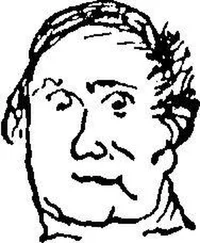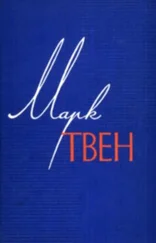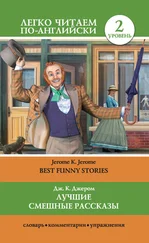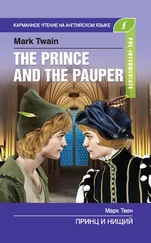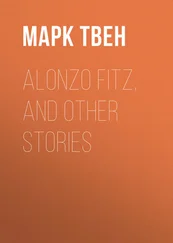Марк Твен - Смешные рассказы [The Funny Stories]
Здесь есть возможность читать онлайн «Марк Твен - Смешные рассказы [The Funny Stories]» — ознакомительный отрывок электронной книги совершенно бесплатно, а после прочтения отрывка купить полную версию. В некоторых случаях можно слушать аудио, скачать через торрент в формате fb2 и присутствует краткое содержание. Город: Москва, Год выпуска: 2017, ISBN: 2017, Издательство: АСТ, Жанр: Классическая проза, foreign_language, на английском языке. Описание произведения, (предисловие) а так же отзывы посетителей доступны на портале библиотеки ЛибКат.
- Название:Смешные рассказы [The Funny Stories]
- Автор:
- Издательство:АСТ
- Жанр:
- Год:2017
- Город:Москва
- ISBN:978-5-17-104431-2
- Рейтинг книги:4 / 5. Голосов: 1
-
Избранное:Добавить в избранное
- Отзывы:
-
Ваша оценка:
- 80
- 1
- 2
- 3
- 4
- 5
Смешные рассказы [The Funny Stories]: краткое содержание, описание и аннотация
Предлагаем к чтению аннотацию, описание, краткое содержание или предисловие (зависит от того, что написал сам автор книги «Смешные рассказы [The Funny Stories]»). Если вы не нашли необходимую информацию о книге — напишите в комментариях, мы постараемся отыскать её.
Смешные рассказы [The Funny Stories] — читать онлайн ознакомительный отрывок
Ниже представлен текст книги, разбитый по страницам. Система сохранения места последней прочитанной страницы, позволяет с удобством читать онлайн бесплатно книгу «Смешные рассказы [The Funny Stories]», без необходимости каждый раз заново искать на чём Вы остановились. Поставьте закладку, и сможете в любой момент перейти на страницу, на которой закончили чтение.
Интервал:
Закладка:
Yes, one of the brightest gems in the New England weather is the uncertainty of it. There is only one thing certain about it: you are certain there is going to be plenty of it; but you never can tell how it is going to start. You prepare for the drought; you leave your umbrella in the house, and two to one you get drowned. You make up your mind that the earthquake is likely to come; you take hold of something to steady yourself, and the first thing you know you get struck by lightning. These are great disappointments; but they can’t be helped.
The lightning there is peculiar. And the thunder. When the thunder begins to merely tune up and scrape, and tune up the instruments for the performance, strangers say, “Why, what awful thunder you have here!” But when the baton is raised and the real concert begins, you’ll find that stranger hiding in the cellar.
Now as to the size of the weather in New England, it is utterly disproportioned to the size of that little country. Half the time, when it is packed as full as it can stick, you will see that New England weather sticking out beyond the edges and spreading around hundreds and hundreds of miles over the neighboring states. She can’t hold a tenth part of her weather.
I could speak volumes about the mysteries of the New England weather, but I will give but a single example now. I like to hear rain on a tin roof. So I covered part of my roof with tin. Well, sir, do you think it ever rains on that tin? No, sir; skips it every time. Mind, in this speech I have been trying to do honor to the New England weather.
But, after all, there is at least one or two things about that weather (or, if you please, effects produced, by it) which we would not like to part with. For example, there are these ice-storms, when a leafless tree is in ice from the bottom to the top — ice that is as bright and clear as crystal; when every branch and twig is in ice-beads, and the whole tree sparkles cold and white. Then the wind waves the branches and the sun comes out and turns all those myriads of beads to prisms that glow and flash like colored fires, which change and change again from blue to red, from red to green, and green to gold — the tree becomes a fountain of amazing jewels. It stands there the supremest possibility in art or nature of bewildering, intoxicating magnificence. One cannot make the words too strong.
The Story of the Good Little Boy
Once there was a good little boy by the name of Jacob Blivens. He always obeyed his parents, no matter how absurd and unreasonable their demands were. He always learned his book. None of the other boys could ever make that boy out, he acted so strangely. He wouldn’t lie, no matter how convenient it was. He just said it was wrong to lie, and that was sufficient for him. And he was so honest that he was simply ridiculous.
He wouldn’t play marbles on Sunday. He wouldn’t rob birds’ nests. He didn’t seem to take any interest in any kind of rational amusement. The other boys tried to understand him, but they couldn’t. So they took him under their protection, and never allowed any harm to come to him.
This good little boy read all the Sunday-school books. They were his greatest delight. This was the whole secret of it. He believed in the gold little boys they put in the Sunday-school book. He wanted to come across one of them alive once; but he never did. They all died before his time, maybe. Whenever he read about a particularly good one, he turned over quickly to the end to see what became of him. He wanted to travel thousands of miles and see him; but that good little boy always died in the last chapter. There was always a picture of the funeral, with all his relations and the Sunday-school children standing around the grave in pantaloons that were too short, and bonnets that were too large.
Jacob had a noble ambition to be put in a Sunday school book. He wanted to be put in, with pictures representing him declining to lie to his mother, and her weeping for joy about it; and pictures representing him standing on the doorstep giving a penny to a poor beggar-woman with six children.
That was the ambition of young Jacob Blivens. He wished to be put in a Sunday-school book. It made him feel a little uncomfortable sometimes when he thought that the good little boys always died. He loved to live, you know.
He knew it was not healthy to be good. He knew it was not healthy to be so supernaturally good as the boys in the books were. He knew that none of them had ever been able to live long. It also disappointed him that if they put him in a book he wouldn’t ever see it, or even if they did get the book out before he died it wouldn’t be popular without any picture of his funeral in the back part of it. So at last, of course, he had to make up his mind to do the best he could under the circumstances — to live right, and hang on as long as he could.
But somehow nothing ever went right with the good little boy; nothing ever turned out with him the way it turned out with the good little boys in the books. They always had a good time, and the bad boys had the broken legs. In his case it all happened just the other way.
When he found Jim Blake stealing apples, and went under the tree to read to him about the bad little boy who fell out of a neighbor’s apple tree and broke his arm, Jim fell out of the tree, too, but he fell on him and broke his arm, and Jim wasn’t hurt at all. Jacob couldn’t understand that. There wasn’t anything in the books like it.
And once, when some bad boys pushed a blind man over in the mud, and Jacob ran to help him up, the blind man hit him on the head with his stick and said he would like to catch him pushing him again, and then pretending to help him up. This was not like in any of the books. Jacob looked them all over to see.
Later Jacob wanted to find a lame dog that hadn’t any place to stay and was hungry. He wanted to bring him home and pet him and have that dog’s gratitude. And at last he found one and was happy. He brought him home and fed him, but when he was going to pet him the dog started to bite and tore the clothes off him. He examined the books, but he could not understand what he had done wrong.
Once, when he was on his way to Sunday-school, he saw some bad boys starting off in a sailboat. He knew from his reading that boys who went sailing on Sunday got drowned. So he ran out on a raft to warn them, but a log turned with him and he fell into the river. A man got him out pretty soon, but he caught cold and stayed in bed for nine weeks. And the bad boys in the boat had a good time all day, and then reached home alive and well. Jacob Blivens said there was nothing like these things in the books.
When he got well he was a little discouraged, but he decided to keep on trying anyhow. He knew that so far his experiences wouldn’t do to go in a book. If everything else failed, he had his dying speech.
He found that it was now time for him to go to sea as a cabin boy. He went to a ship captain, and when the captain asked for his recommendations he proudly drew out a tract and pointed to the word, “To Jacob Blivens, from his teacher.” But the captain said that it wasn’t any proof that he knew how to wash dishes or handle a bucket, and he guessed he didn’t want him. This was the most extraordinary thing that ever happened to Jacob in all his life. A compliment from a teacher, on a tract, had never failed to move the tenderest emotions of ship captains, and open the way to all offices. It never had in any book that he had ever read.
At last, one day, when he was around hunting up bad little boys, he found a lot of them in the old iron-foundry fixing up a little joke on fourteen or fifteen dogs, which they had tied together in long procession. They were going to ornament these dogs’ tails with empty nitroglycerin cans. Jacob’s heart was touched. He sat down on one of those cans, and he took hold of the first dog by the collar, and turned his eye upon wicked Tom Jones. But just at that moment Alderman McWelter, full of wrath, stepped in. All the bad boys ran away, but Jacob Blivens rose in conscious innocence and began one of those little Sunday-school-book speeches which always start with “Oh, sir!”. But the man never waited to hear the rest. He took Jacob Blivens by the ear and turned him around, and hit him in the rear [12] … and hit him in the rear —..и дал ему хорошего шлепка…
with his hand.
Интервал:
Закладка:
Похожие книги на «Смешные рассказы [The Funny Stories]»
Представляем Вашему вниманию похожие книги на «Смешные рассказы [The Funny Stories]» списком для выбора. Мы отобрали схожую по названию и смыслу литературу в надежде предоставить читателям больше вариантов отыскать новые, интересные, ещё непрочитанные произведения.
Обсуждение, отзывы о книге «Смешные рассказы [The Funny Stories]» и просто собственные мнения читателей. Оставьте ваши комментарии, напишите, что Вы думаете о произведении, его смысле или главных героях. Укажите что конкретно понравилось, а что нет, и почему Вы так считаете.
![Марк Твен Смешные рассказы [The Funny Stories] обложка книги](/books/29189/mark-tven-smeshnye-rasskazy-the-funny-stories-cover.webp)
